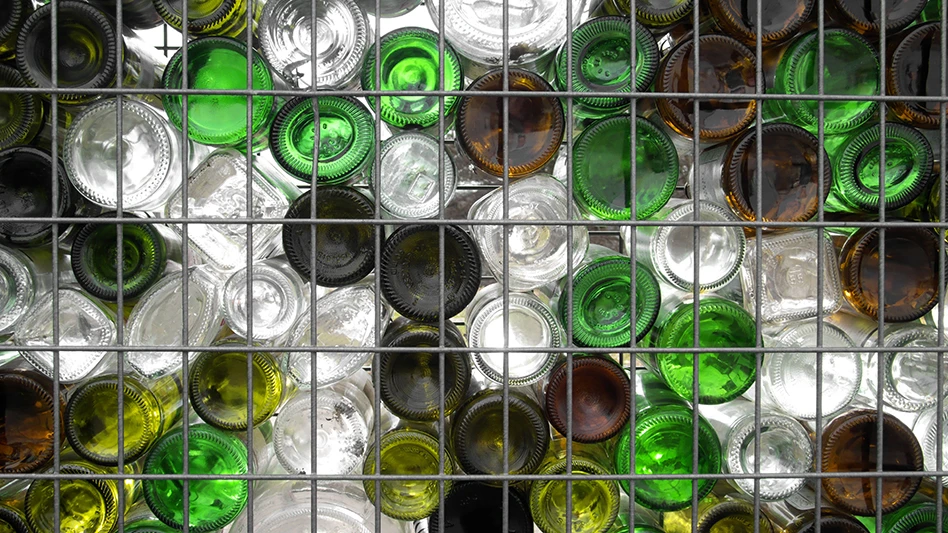
© Darknightsky | Dreamstime.com
The Northeast Recycling Council (NERC), Brattleboro, Vermont, has released a revised its
‘Glass Minimum Postconsumer Recycled Content Model Legislation’ after a subcommittee of the original stakeholders’ group revised the original version of the model legislation.
According to a news release from NERC, the primary revision to the model legislation includes a concept of a credit toward the postconsumer recycled content requirement for products manufactured and/or sold by glass bottle and fiberglass manufacturers in a given year. NERC says the credit is based on the amount of postconsumer recycled glass consumed by other end uses that have demonstrated a climate benefit equal to or greater than that of recycling glass in a furnace—pozzolan, foamed glass aggregate and other salable products.
“The revisions to the model legislation provide greater flexibility for policymakers looking at available markets and glass manufacturing activity and will allow glass recycling to move forward based on what works best in a given region or specific state,” says Chris Nelson, director of Sustainable Materials Management Planning & Implementation with the Connecticut Department of Energy & Environmental Protection, NERC board member and co-facilitator of the Model Legislation Stakeholder Process.
NERC says the model legislation is intended to be used by legislators as a starting point for creating legislation that would require the use of postconsumer cullet in certain products manufactured or sold in their state.
“The model legislation is one tool for building postconsumer glass markets,” NERC Executive Director Megan Fontes says. “It is intended to be used with other legislative and nonlegislative tools as part of a comprehensive strategy.”
The main goals of the model legislation are to incentivize markets for recycled glass, improve the economics of recovering glass and reduce the environmental impact of manufacturing. NERC says the model legislation promotes the expanded use of postconsumer cullet in manufacturing new products, motivates development of markets for postconsumer cullet and reduces the amount of glass that would be treated as waste.
Latest from Recycling Today
- BMW Group, Encory launch 'direct recycling’ of batteries
- Loom Carbon, RTI International partner to scale textile recycling technology
- Goodwill Industries of West Michigan, American Glass Mosaics partner to divert glass from landfill
- CARI forms federal advocacy partnership
- Monthly packaging papers shipments down in November
- STEEL Act aims to enhance trade enforcement to prevent dumping of steel in the US
- San Francisco schools introduce compostable lunch trays
- Aduro graduates from Shell GameChanger program





